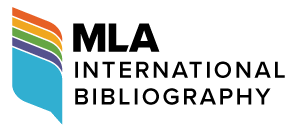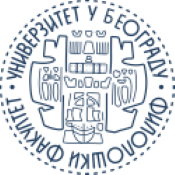The Myth of Leda and the Swan Observed through the Prism of Rubén Darío ("Leda") and Delmira Agustini ("El cisne")
DOI:
https://doi.org/10.18485/beoiber.2021.5.1.4Abstract
The literary movement modernismo originated in Spanish America and gave birth to very important poets in Spanish American literature, bringing about novelties in poetry. Topics originating from classical history and mythology, Eastern civilizations and pre-Hispanic America were treated in an original way, which is one of its main novelties. That is also the topic of this paper, which considers the treatment of the Greek myth from the point of view of Nicaraguan poet Rubén Darío (1867–1916) and Uruguayan poet Delmira Agustini (Delmira Agustini, 1886–1914). The myth in question is about Leda and the swan, and the corpus includes the poems "Leda" ("Leda") written by Darío and "The Swan" ("El cisne") written by Agustini. The aim of this article is to point out the similarities and differences in the treatment of the aforementioned myth. Bearing in mind that Delmira Agustini is a part of the second generation of modernists, the so-called postmodernists, and Ruben Dario is the most important representative of modernismo at its peak, it is interesting, on one hand, to compare their interpretations and visions of this Hellenic myth, and on the other hand, to point out the extent to which mythological and symbolist elements are adopted, surpassed and, ultimately, matched in selected poems. Their interpretations of this myth differ greatly, and we came to this conclusion through a systematic analysis of the mentioned poems. Key words: Rubén Darío, Delmira Agustini, Greek mythology, Leda, swan.References
Agustini, Delmira. «El cisne.» Poesías completas. Magdalena García Pinto (ed.). Madrid: Cátedra, 2000. 255–257. Impreso.
Beaupied, Aída. «Otra lectura de ʻEl cisneʼ de Delmira Agustini.» Letras Femeninas 22.1/2 (1996): 131–142. JSTOR. Web. 13.12.2019.
Castillo, Jorge Luis. «Delmira Agustini o el modernismo subversivo.» Chasqui: revista de literatura latinoamericana 27.2 (1998): 70–84. JSTOR. Web. 15.12.2019.
Cuello Privitera, Tatiana. «El símbolo del cisne en Rubén Darío.» Revista de Literaturas Modernas 47.1 (2017): 135–150. Web. 20.4.2021.
Darío, Rubén. «Leda.» Cantos de vida y esperanza, los cisnes y otros poemas. Francisco J. Díez de Revenga (ed.). Salamanca: Ediciones Almar, 2001. 120–121. Impreso.
―. «Pórtico». Poesías completas. Magdalena García Pinto (ed.). Madrid: Cátedra, 2000. 223. Impreso.
Hernández, Alexander. «La evolución del cisne en la poesía de Rubén Darío.» Realidad 145–146 (2015): 73–88. Web. 30.11.2019.
Lanieri, Morena Carla. «El imaginario erótico femenino en Delmira Agustini y Alfonsina Storni.» La penna di venere: escritture dell'ammore nelle culture iberiche. Atti del XX Convegno [Associazione Ispanisti Italiani]. Vol. 1. Domenico Antonio Cusato e Loretta Frattale (coord.). Firenze: Andrea Lippolis Editore, 2002. 421–434. Web. 27.11.2019.
Le Corre, Hervé. Poesía hispanoamericana posmodernista. Madrid: Editorial Gredos, 2001. Impreso.
Lodato, Rosemary C. Beyond the Glitter: The Language of Gems in Modernista Writers Ruben Dario, Ramon Del Valle-Inclan, and Jose Asuncion Silva. Lewisburg: Bucknell University Press, 1999. 109–118. Web. 5.12.2019.
Mártinez Cuadrado, Jerónimo. «El cisne, leit-motiv de la poesía parnasiana, simbolista y modernista.» Anales de Filología Francesa 10 (2001–2002): 83–99. Web. 25.4.2021.
Molloy, Sylvia. «Dos lecturas del cisne: Rubén Darío y Delmira Agustini.» Revista de la Universidad de México 29 (1983): 14–18. Web. 12.12.2019.
Oviedo, José Miguel. Historia de la literatura hispanoamericana. Postmodernismo, vanguardismo, regionalismo. Tomo III. Madrid: Alianza Editorial, 2001. Impreso.
Pedraza Jiménez, Felipe B. Manual de la literatura hispanoamericana. Modernismo. Tomo III. Pamplona: Cénlit Ediciones, 2005. Impreso.
Pleitez Vela, Tania. «Delmira Agustini, transitando y superando la órbita dariana.» Mitologías hoy 13 (2016): 83–100. Web. 15.11.2019.
Downloads
Published
How to Cite
Issue
Section
License
Copyright (c) 2021 Tamara Kedić

This work is licensed under a Creative Commons Attribution-ShareAlike 4.0 International License.
Authors who publish with this journal agree to the following terms:
- Authors retain copyright and grant the journal right of first publication with the work simultaneously licensed under a Creative Commons Attribution-ShareAlike 4.0 International License that allows others to share the work with an acknowledgement of the work's authorship and initial publication in this journal.
- Authors are able to enter into separate, additional contractual arrangements for the non-exclusive distribution of the journal's published version of the work (e.g., post it to an institutional repository or publish it in a book), with an acknowledgement of its initial publication in this journal.
- Authors are permitted and encouraged to post their work online (e.g., in institutional repositories or on their website) prior to and during the submission process, as it can lead to productive exchanges, as well as earlier and greater citation of published work (See The Effect of Open Access).













